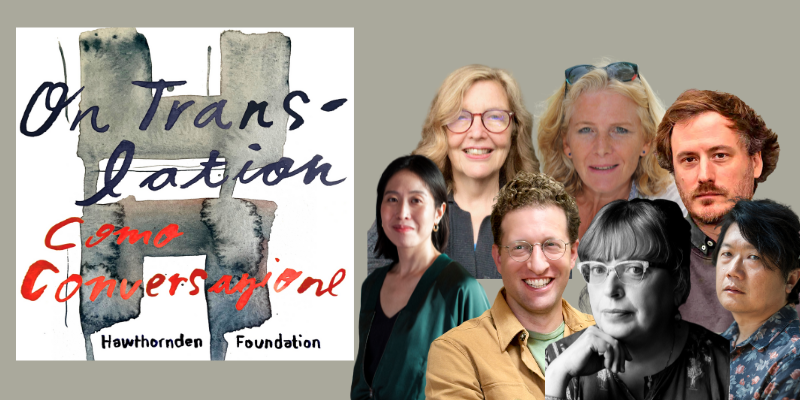
First Sentences and Translating Proust on The Critic and Her Publics
a week-long season on translation begins
Welcome to Season Three of The Critic and Her Publics: On Translation.
In 1999, twelve distinguished writers gathered at Casa Ecco, a villa on Lake Como, to discuss the art of translation. Twenty-five years later, their ideas are still apt and powerful. Last October, Merve Emre convened a group of translators and publishers at the same villa to return to those ideas and to examine a field at an inflection point.
In this series, you’ll hear from the translators Maureen Freely, Daisy Rockwell, Virginia Jewiss, Jeremy Tiang, and Tiffany Tsao, as well as publishers Adam Levy (Transit Books) and Jacques Testard (Fitzcarraldo Editions).
Subscribe to The Critic and Her Publics, available wherever you get your podcasts!
In these first two episodes of Hawthornden’s Como Conversazione, we explore beginnings. We start with an exercise in practical translation: a discussion of seven different English interpretations of one, highly complicated sentence from Volume One of Marcel Proust’s In Search of Lost Time. Maureen Freely will speak first, followed by Daisy Rockwell, Virginia Jewiss, Jeremy Tiang, and finally Tiffany Tsao. It sounds like a lot to keep track of, but in the course of these conversations, you will get to know all of their voices very well.
Then, as anyone who has been around kids knows, a good Lego build starts with a good base. In a translation, this is the first sentence of a text. First sentences are so often the most famous lines. They are a place for a translator to make their mark. They dictate the voice in which the book unfolds. But has the importance of the first sentence been overly inflated?
For full transcripts, head over to the New York Review of Books.
_________________________________
The Critic and Her Publics
Hosted by Merve Emre • Edited by Michele Moses • Music by Dani Lencioni • Art by
Leanne Shapton • Sponsored by Alfred A. Knopf
This season of The Critic and Her Publics is a co-production between the Hawthornden Foundation, New York Review of Books, and Lit Hub.
The Critic and Her Publics
The best and most prominent critics working today perform criticism on the spot, on an object they’ve never seen before. It’s a glimpse into brilliant minds at work as they perform how to think about art and culture. From the New York Review of Books and Literary Hub, The Critic and Her Publics is a limited series hosted by Merve Emre.



















